Why do we listen to music? Is it to analyze the melodic and harmonic relationships between intervals, chords, and scales? Do we dissect the skeletal structure of the music by determining its form, its shape, or its color? Do we theorize about the intricacies and exploration of the relationship between the composition and the composer who gave birth to their composition and openly invited us into their musical universe? Do we proclaim musical genius, divine inspiration, or musical mayhem when discussing musicians and the mode by which their creations take form, and how they come into existence and obtain a permanent place in the history of music? Music is more than pitches vibrating at varying frequencies and passing through the air in successive sound waves as they hit our fine tuned ears . It is more than measurable and calculated decibels that dissipate and delight our eardrums. Music can be found in any object at anytime. Think of the following items and determine for yourself how each makes music:
a Bird - a Rock - a Tree - a Seashell - the Wind - a Trash can - a Dump Truck - Water, etc.
Each of these makes music in its own individual way. We could add more to the list. In fact, the list is endless. How we view music is primarily based on our own personal preferences. Some have biases toward music because of their upbringing. Others have dedicated themselves and their time to learn an instrument and their musical attention tends to focus more on music played on the instrument they have learned, in part, because of their feelings toward the instrument they have grown to enjoy so much.
Others feel loyal to musicians, music genres, lyrics, etc. because they have made a connection along the way. Regardless of how we personally feel about music, music is not the end result. Music remains incomplete until we complete the composers' compositions. You see, it is up to us to attach value to the music. The music does not exist on its own - independent of our existence. For the music to "come alive" and "become a part of us", we must make the music our own. We add value to the music by attaching our feelings or what we feel, to the music we hear. It is a culmination of the process whereby we personally express our experiences or receive and relate to the experiences others share with us - whether they are physical, mental, emotional, financial, spiritual, logical, rational, irrational, etc., by opening our ears, our minds, and our hearts to the music before us.
As we open our ears a little more to hear the music around us, our minds will be enlightened and our hearts will be touched. We will enjoy the music of a baby crying, a dog barking, a child yelling, or a horn honking. As we train our ears, our minds, and our hearts to listen to others, we will then understand that music is made by listening not just with our ears, but with our minds and our hearts.
Written by Jerald M. Simon
Copyright © 2008 Music Motivation®
All Rights Reserved
Saturday, January 31, 2009
Why do piano students not practice?
There are many factors that cause piano students not to practice. It is not necessarily that they don't want to practice, per-se. In part, students from this generation (which I will refer to as the fast food generation) are very actively involved in the arena of life. They are on a never-ending treadmill where they have little or no time to spare. Some, because of their parents, friends, and others, have crammed too many extra-curricular activities into each day, leaving them with no time to do anything else.
This cramming effect may give them "piano cramps" where their piano practicing gets pushed aside, is poorly done, overlooked, discarded, rejected, or ignored because they have chosen to focus their attention on something other than their musical instrument as a priority for their time. In a way, the student turns their back on practicing the piano because they're backed up against the time-table. They have filled each spare hour of each day with good activities. It is not that they are doing bad activities or are inactive (for the most part), they are no longer choosing between good and bad ways to spend their time - they are choosing between good, better, and the best way to spend their time, which varies for everyone depending on their interests, environmental influence, peer pressure, desire, etc.
There are some piano students who have more than enough time to practice and don't simply because they would rather watch T.V., play video games, or not do anything at all. I have found, in my teaching, that these students are more the exception than the norm. Generally speaking, students are busily doing homework, running back and forth from extra-curricular activities, such as karate lessons, soccer games, basketball games, football, baseball, hockey, track, dance, cheer leading, school plays, etc., and it never seems to end. Students try to do everything to please everyone and want it all. Many students want to be everything, but they want everything now. They don't want to wait for anything or attempt to do something which requires a great deal of effort and time.
This is why I refer to them as "the fast food generation". Society has propelled them to embrace impatience. They expect quick results, one hour dry cleanings, developed film in an hour, instant voice messaging, instant emails, text messaging, uploads, downloads, and the list goes on. Their generation has grown up with faster connections, quicker programing, how to do it all in 5 easy steps, and the quick and easy way to success, wealth, knowledge, and anything you want.
This is a wonderful goal and it is very important for the students to be well - rounded and learn as much as they can and accomplish as much as they can - but not at the expense of not being extensive and thorough by being too hasty.
Well meaning students who intend to practice religiously, day in and day out, too often have additional activities pop-up. Some are planned and some are spontaneous. Music students must be well-rounded. A teacher cannot and should not expect their piano students to solely focus all of their time and energy on playing the piano, unless the student has stated they want to solely focus all of their time and energy on playing the piano so they can become concert pianists - at which point the student should be enlightened that even concert pianists took time out of their schedules to play a game every now and then, watch a movie, or read a book.
Teachers and parents should encourage their music students to try several activities. Students must understand that music is not meant to replace all of their other activities. Sadly, sometimes teachers reprimend students for not having progressed when the teacher has no real understanding of what went on in the previous week with the student. Some parents use the piano or any musical instrument as leverage and force the students to practice before playing with friends or having fun. Rather than helping the students learn to have fun playing the piano, they become bitter and angry everytime they sit down to the piano because they associate it with a negative experience. They see the piano as a ball and chain that prevents them from having fun because their parents have turned it into a chore instead of something they choose to do for themselves.
Learning any instrument is difficult and there are times when students need a break. Too much of anything is a bad thing. Students need to be given credit for all they do and all they accomplish. Those who are actively involved and are doing their best have nothing to worry about. Those who are not doing anything at all should feel annoyed that they don't have any goals and are literally wasting their time.
We can always do more and be more. As music teachers we can help our students understand how to be more productive and accomplish more. They must realize there is a time for working and a time for playing. Soon enough, they will see piano practicing as a time to play and enjoy the music. It may seem like work right now, but if we teach them how to play they will continue playing for the rest of their lives.
Written by Jerald M. Simon
Copyright © 2009 Music Motivation®
All Rights Reserved
This cramming effect may give them "piano cramps" where their piano practicing gets pushed aside, is poorly done, overlooked, discarded, rejected, or ignored because they have chosen to focus their attention on something other than their musical instrument as a priority for their time. In a way, the student turns their back on practicing the piano because they're backed up against the time-table. They have filled each spare hour of each day with good activities. It is not that they are doing bad activities or are inactive (for the most part), they are no longer choosing between good and bad ways to spend their time - they are choosing between good, better, and the best way to spend their time, which varies for everyone depending on their interests, environmental influence, peer pressure, desire, etc.
There are some piano students who have more than enough time to practice and don't simply because they would rather watch T.V., play video games, or not do anything at all. I have found, in my teaching, that these students are more the exception than the norm. Generally speaking, students are busily doing homework, running back and forth from extra-curricular activities, such as karate lessons, soccer games, basketball games, football, baseball, hockey, track, dance, cheer leading, school plays, etc., and it never seems to end. Students try to do everything to please everyone and want it all. Many students want to be everything, but they want everything now. They don't want to wait for anything or attempt to do something which requires a great deal of effort and time.
This is why I refer to them as "the fast food generation". Society has propelled them to embrace impatience. They expect quick results, one hour dry cleanings, developed film in an hour, instant voice messaging, instant emails, text messaging, uploads, downloads, and the list goes on. Their generation has grown up with faster connections, quicker programing, how to do it all in 5 easy steps, and the quick and easy way to success, wealth, knowledge, and anything you want.
This is a wonderful goal and it is very important for the students to be well - rounded and learn as much as they can and accomplish as much as they can - but not at the expense of not being extensive and thorough by being too hasty.
Well meaning students who intend to practice religiously, day in and day out, too often have additional activities pop-up. Some are planned and some are spontaneous. Music students must be well-rounded. A teacher cannot and should not expect their piano students to solely focus all of their time and energy on playing the piano, unless the student has stated they want to solely focus all of their time and energy on playing the piano so they can become concert pianists - at which point the student should be enlightened that even concert pianists took time out of their schedules to play a game every now and then, watch a movie, or read a book.
Teachers and parents should encourage their music students to try several activities. Students must understand that music is not meant to replace all of their other activities. Sadly, sometimes teachers reprimend students for not having progressed when the teacher has no real understanding of what went on in the previous week with the student. Some parents use the piano or any musical instrument as leverage and force the students to practice before playing with friends or having fun. Rather than helping the students learn to have fun playing the piano, they become bitter and angry everytime they sit down to the piano because they associate it with a negative experience. They see the piano as a ball and chain that prevents them from having fun because their parents have turned it into a chore instead of something they choose to do for themselves.
Learning any instrument is difficult and there are times when students need a break. Too much of anything is a bad thing. Students need to be given credit for all they do and all they accomplish. Those who are actively involved and are doing their best have nothing to worry about. Those who are not doing anything at all should feel annoyed that they don't have any goals and are literally wasting their time.
We can always do more and be more. As music teachers we can help our students understand how to be more productive and accomplish more. They must realize there is a time for working and a time for playing. Soon enough, they will see piano practicing as a time to play and enjoy the music. It may seem like work right now, but if we teach them how to play they will continue playing for the rest of their lives.
Written by Jerald M. Simon
Copyright © 2009 Music Motivation®
All Rights Reserved
Sunday, January 11, 2009
Musical Memories
Memories are interesting entities. In and of themselves they exist, in part, as a trailing reminder or constant companion of our personal ties to people, places, experiences, images, sounds, ideas, and dreams.
Musical memories tend to embody how each of these is influenced by and connected to music. Music is very powerful because it connects to the brain, the heart, and the spirit. It connects to the brain on many levels because it has the power to create and destroy neurons in the brain. It connects to the heart because our heart rate can accelerate, decelerate, or become irregular according to the rhythm of the music. The spirit, however, connects to music on a deeper level because our spirits are continually touched by the power of music on our memories. We may hear a song that moves us and remember the first time we heard that music. The words may carry a particular importance to us personally because they remind us of friends, family, and personal experiences.
I remember one particular musical memory that stands out to me. As a teenager, I remember being on a trip with my family. My father was driving and my mother was in the passenger seat. A song came on the radio and my father's eyes began to get teary. The song was "Leader of the Band" by Dan Fogelberg. The lyrics of the song touched my father and he began to openly cry. My father, I assume, thought all of us children were asleep. As he drove he held my mother's hand and they listened to the lyrics of the song. These are the lyrics of the song:
An only child alone and wild, a cabinet maker's son
His hands were meant for different work and his heart was known to none --
He left his home and went his lone and solitary way
And he gave to me a gift I know I never can repay
A quiet man of music denied a simpler fate
He tried to be a soldier once but his music wouldn't wait
He earned his love through discipline, a thundering, velvet hand
His gentle means of sculpting souls took me years to understand.
The leader of the band is tired and his eyes are growing old
But his blood runs through my instrument and his song is in my soul --
My life has been a poor attempt to imitate the man
I'm just a living legacy to the leader of the band.
My brothers' lives were different for they heard another call
One went to Chicago and the other to St. Paul
And I'm in Colorado when I'm not in some hotel
Living out this life I've chose and come to know so well.
I thank you for the music and your stories of the road
I thank you for the freedom when it came my time to go --
I thank you for the kindness and the times when you got tough
And, pap, I don't think I said I love you near enough --
The leader of the band is tired and his eyes are growing old
But his blood runs through my instrument and his song is in my soul --
My life has been a poor attempt to imitate the man
I'm just a living legacy to the leader of the band
I am the living legacy to the leader of the band.
What beautiful lyrics. My father, I assume, was thinking about his father as he heard the lyrics to the song. A memory had been created in his mind and images came flooding in to bring his emotions to the surface. Whenever I hear that song, memories come flooding into my mind and I see my father driving, lost in thought, and remembering.
Written by Jerald M. Simon
Copyright © 2008 Music Motivation®
All Rights Reserved
Musical memories tend to embody how each of these is influenced by and connected to music. Music is very powerful because it connects to the brain, the heart, and the spirit. It connects to the brain on many levels because it has the power to create and destroy neurons in the brain. It connects to the heart because our heart rate can accelerate, decelerate, or become irregular according to the rhythm of the music. The spirit, however, connects to music on a deeper level because our spirits are continually touched by the power of music on our memories. We may hear a song that moves us and remember the first time we heard that music. The words may carry a particular importance to us personally because they remind us of friends, family, and personal experiences.
I remember one particular musical memory that stands out to me. As a teenager, I remember being on a trip with my family. My father was driving and my mother was in the passenger seat. A song came on the radio and my father's eyes began to get teary. The song was "Leader of the Band" by Dan Fogelberg. The lyrics of the song touched my father and he began to openly cry. My father, I assume, thought all of us children were asleep. As he drove he held my mother's hand and they listened to the lyrics of the song. These are the lyrics of the song:
An only child alone and wild, a cabinet maker's son
His hands were meant for different work and his heart was known to none --
He left his home and went his lone and solitary way
And he gave to me a gift I know I never can repay
A quiet man of music denied a simpler fate
He tried to be a soldier once but his music wouldn't wait
He earned his love through discipline, a thundering, velvet hand
His gentle means of sculpting souls took me years to understand.
The leader of the band is tired and his eyes are growing old
But his blood runs through my instrument and his song is in my soul --
My life has been a poor attempt to imitate the man
I'm just a living legacy to the leader of the band.
My brothers' lives were different for they heard another call
One went to Chicago and the other to St. Paul
And I'm in Colorado when I'm not in some hotel
Living out this life I've chose and come to know so well.
I thank you for the music and your stories of the road
I thank you for the freedom when it came my time to go --
I thank you for the kindness and the times when you got tough
And, pap, I don't think I said I love you near enough --
The leader of the band is tired and his eyes are growing old
But his blood runs through my instrument and his song is in my soul --
My life has been a poor attempt to imitate the man
I'm just a living legacy to the leader of the band
I am the living legacy to the leader of the band.
What beautiful lyrics. My father, I assume, was thinking about his father as he heard the lyrics to the song. A memory had been created in his mind and images came flooding in to bring his emotions to the surface. Whenever I hear that song, memories come flooding into my mind and I see my father driving, lost in thought, and remembering.
Written by Jerald M. Simon
Copyright © 2008 Music Motivation®
All Rights Reserved
Saturday, January 3, 2009
Music Goals for the New Year
At this time of year we often reflect on the previous year, evaluate and examine our personal accomplishments, productivity, progression, or, unfortunately, we often notice our ambitious attempts, postponed promises, inactivity, and personal digression.
Every year we commit to change, improve, learn more, accomplish more, earn/save more money, be better husbands, wives, parents, children, siblings, friends, neighbors, etc., through annual, semi-annual, monthly, weekly, and daily goals. The to do list goes on and on with our own personal promises and hopeful expectations of what we might do as the new year begins, and, if we don't have a step by step plan, goals are meaningless.
Life comes at us quickly. Often, if we aren't prepared or ready for it, life will pass by us and leave us behind. Those of us who have found ourselves stuck in a rut and wanting something more must ask who we are and discover what we personally need and want out of life. If we don't know who we are, what we personally need, or want from life, we will never obtain it.
When students ask me how to improve their piano playing, I ask them what they specifically want to accomplish. I ask them to tell me what their personal goal is as it pertains to playing the piano. Why do they want to play the piano in the first place? What do they hope to accomplish by studying music? What do they personally want to be able to do once they have developed the skill of playing an instrument? Are they planning on using this skill/talent as a career? Are they hoping to use their musical ability to become rich and famous? What is their objective with music?
Many students, at first, look at me and wonder why I ask them so many questions. To them, they think there should be a clear cut answer to how they can improve their piano playing. Maybe they are hoping for a one-liner that can magically change everything. Many students tell me they don't really think about what they want to do because it doesn't matter. "Why", they ask me, "would I want to worry about what I do with the piano in the future? I would rather focus on playing right now and let everything take care of itself." The only problem with that line of reasoning is nothing will take care of itself if left to itself. When the students respond with this kind of response I tell them in order to understand what they must do on a day to day basis right now, they must have a clearly defined idea of what they hope to and are going to accomplish. Once they know where they are going and what they want to do, they can break down the goal into managable "mini" goals.
Setting goals, no matter how big or small, will make us or break us. The saying, "Those who fail to plan, plan to fail", is very true. We may change the phrase a little by saying, "Those who plan to succeed, succeed because they have a plan".
Written by Jerald M. Simon
Copyright © 2008 Music Motivation®
All Rights Reserved
Every year we commit to change, improve, learn more, accomplish more, earn/save more money, be better husbands, wives, parents, children, siblings, friends, neighbors, etc., through annual, semi-annual, monthly, weekly, and daily goals. The to do list goes on and on with our own personal promises and hopeful expectations of what we might do as the new year begins, and, if we don't have a step by step plan, goals are meaningless.
Life comes at us quickly. Often, if we aren't prepared or ready for it, life will pass by us and leave us behind. Those of us who have found ourselves stuck in a rut and wanting something more must ask who we are and discover what we personally need and want out of life. If we don't know who we are, what we personally need, or want from life, we will never obtain it.
When students ask me how to improve their piano playing, I ask them what they specifically want to accomplish. I ask them to tell me what their personal goal is as it pertains to playing the piano. Why do they want to play the piano in the first place? What do they hope to accomplish by studying music? What do they personally want to be able to do once they have developed the skill of playing an instrument? Are they planning on using this skill/talent as a career? Are they hoping to use their musical ability to become rich and famous? What is their objective with music?
Many students, at first, look at me and wonder why I ask them so many questions. To them, they think there should be a clear cut answer to how they can improve their piano playing. Maybe they are hoping for a one-liner that can magically change everything. Many students tell me they don't really think about what they want to do because it doesn't matter. "Why", they ask me, "would I want to worry about what I do with the piano in the future? I would rather focus on playing right now and let everything take care of itself." The only problem with that line of reasoning is nothing will take care of itself if left to itself. When the students respond with this kind of response I tell them in order to understand what they must do on a day to day basis right now, they must have a clearly defined idea of what they hope to and are going to accomplish. Once they know where they are going and what they want to do, they can break down the goal into managable "mini" goals.
Setting goals, no matter how big or small, will make us or break us. The saying, "Those who fail to plan, plan to fail", is very true. We may change the phrase a little by saying, "Those who plan to succeed, succeed because they have a plan".
Written by Jerald M. Simon
Copyright © 2008 Music Motivation®
All Rights Reserved
Subscribe to:
Comments (Atom)






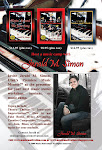.jpg)




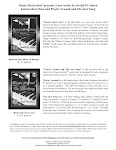


+latest+and+greatest+flattened+(smaller+size)+rgb+mode.jpg)
.jpg)
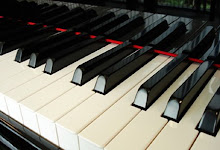

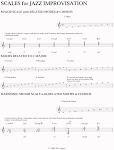
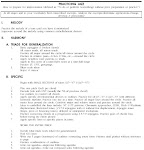


































.jpg)